It’s scene five of Kasper Holten’s production of Tchaikovsky’s Eugene Onegin and Michael Fabiano’s Lensky is alone with a snow-covered branch and his thoughts. Well, not quite alone. At the other side of the stage stands the man he is about to face in a duel: his friend Onegin, who’s apparently arrived ahead of the appointed time and is listening to every word of Lensky’s anguished soliloquy. Except he isn’t: this is the Onegin of the present, looking back on a tragedy in his past. Or possibly imagining it? He can’t, after all, have heard Lensky’s words, for the practical reason that he wasn’t there. Can he? Oh, is that applause? The aria’s over.
The big idea behind Holten’s production — apparently tightened up since its 2013 debut — is this business with doubles. A pair of dancers represent ‘Young Onegin’ and ‘Young Tatyana’; graceful performers, well chosen for their physical resemblance to Dmitri Hvorostovsky’s Onegin and Nicole Car’s Tatyana. They pop up throughout the opera: Tatyana’s letter scene is acted by her double while Car, as her older self, watches, gestures at and ineffectively pleads with —what, exactly? Her own memory?
True, there’s a certain poignancy, an added emotional charge, in seeing a character react on stage to some of the most emotionally honest music Tchaikovsky ever wrote. There’s a literary rationale too: by presenting the drama as a series of memories Holten evokes the first-person narration of Pushkin’s novel, and points up the deliberately episodic nature of Tchaikovsky’s seven ‘lyrical scenes’ (Tchaikovsky refrained from describing Onegin as an opera). In the letter scene it sort of works, if you discount the feeling that Holten is muscling in to dictate the audience’s response at precisely the point where Tchaikovsky is straining with every last ounce of sincerity and expression to get into your heart on his own terms. Elsewhere, as in Lensky’s aria, Holten’s big idea simply confuses and distracts.
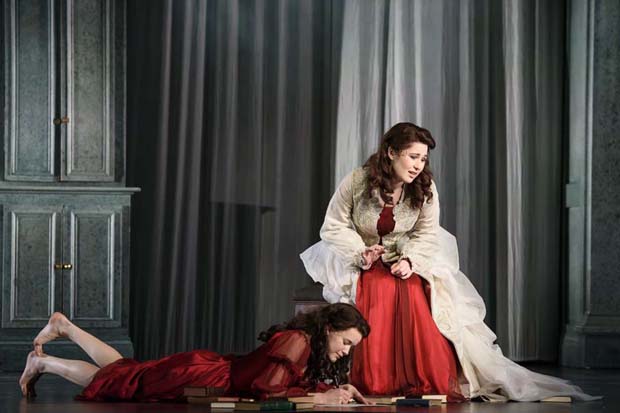
At times the direction is just clumsy. For the exchange between Prince Gremin and Onegin, Holten empties the stage of all other attendees at Gremin’s ball. Since the plot requires Tatyana to be present later, Holten simply parks her against a nearby column in the meantime. Other ideas make a single effective point, and then become background clutter. Or (literally) foreground clutter in the case of the gradual build-up of symbolic objects downstage — a pile of books, a wheatsheaf, that branch and, for the whole of the last two scenes, Lensky’s corpse. Fabiano deserved an ovation for that alone.
What carried this performance is what can carry almost any Onegin, however inconsistent the direction — a sympathetic conductor and a superb Tatyana. Semyon Bychkov and the orchestra played the score like they were in love: really in love, with a tenderness and an eloquent, unforced ebb and flow that struck home even more deeply than the swooning, string-sliding passion that they deployed at the big climaxes. Car seemed to find exactly the same spirit. Vocally, she sounds as fresh and expressive as Tchaikovsky — who preferred young singers in Onegin — could have hoped, with shadows and gleams of light emerging naturally as she sang.
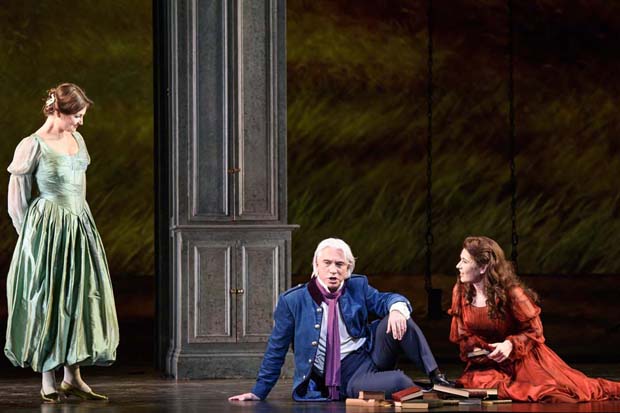
Car’s alert, impulsive acting made Tatyana’s youthful love for Hvorostovsky’s bored-rigid Onegin seem particularly hopeless. Tchaikovsky doesn’t provide much to work with in characters such as Olga (Oksana Volkova — earthy and animated) or Mme Larina (Diana Montague), and Holten didn’t do much to deepen them here, though Catherine Wyn-Rogers played the nurse Filipyevna affectingly straight, and Ferruccio Furlanetto was richly sympathetic as a middle-aged rather than elderly Gremin (Holten devised a particularly cruel little twist in the tale for him). Fabiano’s tenor as Lensky opened out from a tight Italianate warble to a final scene that deepened and darkened to startling effect: a powerful, self-denying piece of vocal characterisation.
More can be found in Onegin, however, than Holten found — a more than usually superfluous man, sung by Hvorostovsky with a consistently golden tone. Given Hvorostovsky’s personal circumstances (he is being treated for a brain tumour), this was an occasion where human considerations outweighed artistic ones and he was greeted with a deserved ovation from the Covent Garden crowd, some of whom had earlier demonstrated their sophistication by yelling ‘bravo’ nanoseconds after the end of Lensky’s aria. That didn’t help, except perhaps to reinforce the suspicion that, individual performances aside, the whole thing wasn’t quite adding up to the quietly crushing experience that a great Eugene Onegin can offer. Discount the directorial gimmicks and this is a smart but superficial production.
Got something to add? Join the discussion and comment below.
Get 10 issues for just $10
Subscribe to The Spectator Australia today for the next 10 magazine issues, plus full online access, for just $10.
You might disagree with half of it, but you’ll enjoy reading all of it. Try your first month for free, then just $2 a week for the remainder of your first year.

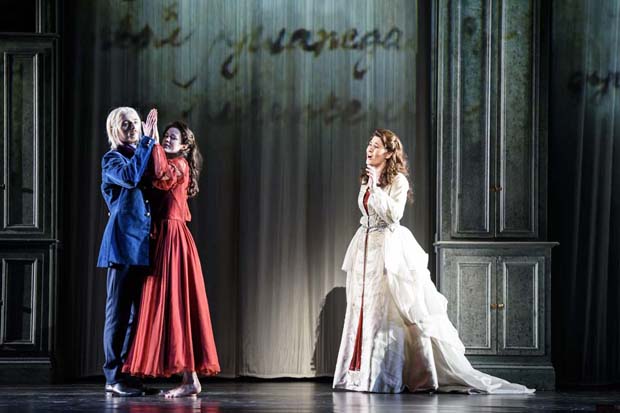

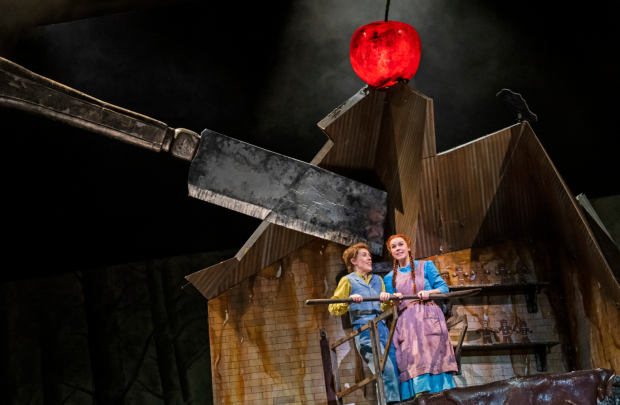
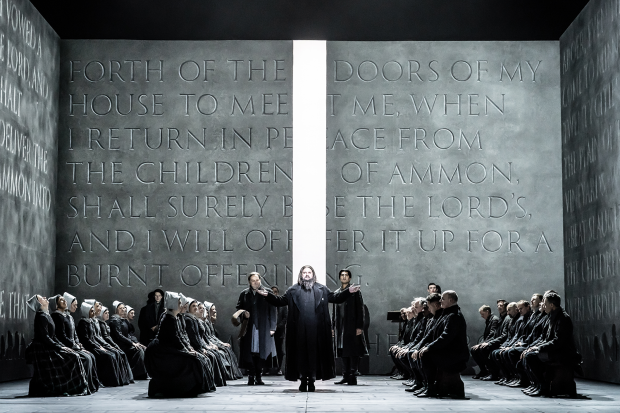
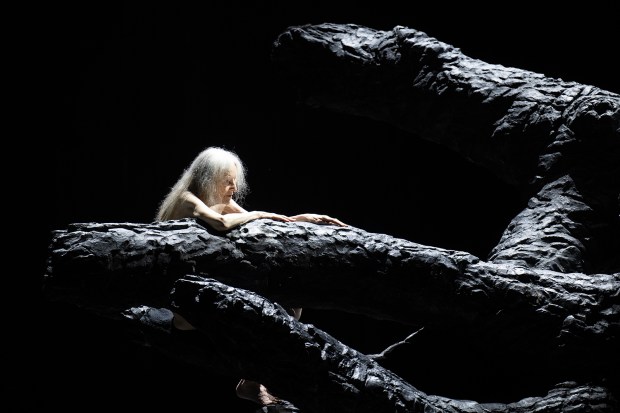
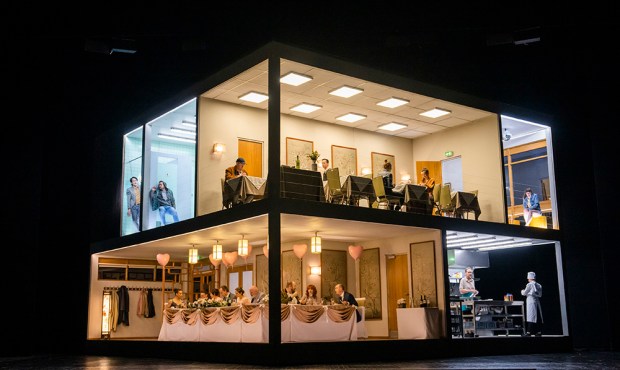
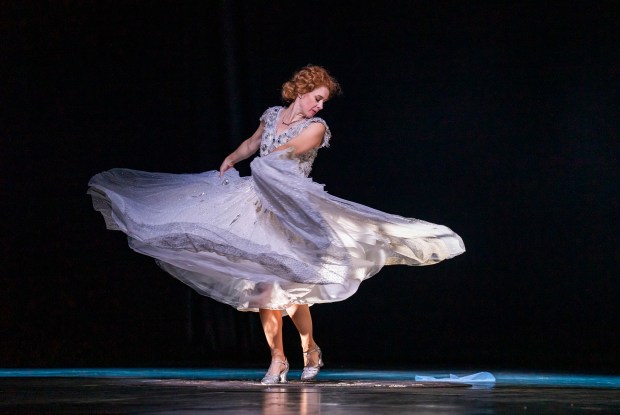






Comments
Don't miss out
Join the conversation with other Spectator Australia readers. Subscribe to leave a comment.
SUBSCRIBEAlready a subscriber? Log in